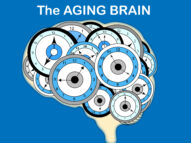events, INC Meetings
INC Young investigators Annual Conference
Thursday 22 May 2025Institut Necker Enfants Malades (INEM), Amphithéâtre 2160 rue de Vaugirard, 75015 Paris
Inscription
INC Young investigators Annual Conference_Program_22 mai 2025-v6Télécharger
Continue reading
grants, opportunities
Open Mind Master students grants – 2025
Six students have been awarded Masters internship grants in 2025.
BIZE Salomé, whose project « Deregulation of HSF-dependent stress response pathway in neurodevelopmental diseases: a new axis with potential therapeutic applications » is supervised by Aurélie DE THONEL (Unité… Continue reading
events, INC Meetings
Brain Awareness Week at the INC from March 8 to 16, 2025
As every year, the researchers of the Institute of Neuroscience and Cognition are mobilizing for Brain Awareness Week and are offering events to share their research with you.
Brain and Space Health: Women in Action
Visit to the Baby Lab… Continue reading
events, INC Meetings
October 24th, 2024 – INC Day 2024 – Brain Aging
Find the complete doc here : INC Day 2024 PDF
Continue reading
events, INC Meetings, Non classé
May 30, 2024 – Annual Conference “INC Young Investigators”
The INC is organizing its 2024 Young PIs Day on May 30, 2024, at the Institut Necker – Enfants Malades, followed by the annual General Assembly.
Program
Continue reading
grants, opportunities
Open Mind Master students grants – 2024
Six students have been awarded Masters internship grants in 2024.
Esmée Brevé, whose project Spatially patterned organoids: evolution of microcircuits and cell migration disorders is supervised by Alessandra Pierani (Team Genetics and development of the cerebral cortex, IMAGINE), in… Continue reading
events, seminars
May 24th, 2024 – Robert Brownstone (UCL Queen Square Institute of Neurology) – The language of movement: insights gained from studying dystonia
A key role of central nervous systems is to drive the musculoskeletal system to move. Hence, a large proportion of the mammalian nervous system spread across diverse regions is used to drive movement. In humans, diseases or injuries to any… Continue reading
events, seminars
May 17th, 2024 – Mayank Mehta (Center for Physics of Life, UCLA) – Hippocampus 2.0
The hippocampus is implicated in many learning and memory disorders including Alzheimer’s. Dozens of drugs have cured these in mice but failed in humans. Hippocampal neurons in rodents show robust spatial selectivity. Hence, the standard test of hippocampal function in mice is the… Continue reading
events, seminars
April 26th, 2024 – Mario Buenrostro Jáuregui (Laboratory of Neuroscience, Universidad Iberoamericana, Mexico) – Obesity and food addiction in animals and humans : the environment as the primary mediator
Obesity and food addiction are current issues in the Western world. While the problem may seem straightforward in terms of energy consumption, the complexity of interactions among various factors, including brain, hormonal, energetic, motivational, social, and environmental mechanisms, makes it… Continue reading
events, seminars
March 22nd, 2024 – Elisabeth Traiffort (Maladies et Hormones du Système Nerveux, Université Paris-Saclay)- Androgens show sex-dependent differences in myelin regeneration of the central nervous system
Multiple sclerosis is an auto-immune, demyelinating and neurodegenerative pathology of the central nervous system (CNS). The early phase of the disease mostly corresponds to a relapsing-remitting form with a succession of demyelinating events, each followed by spontaneous myelin regeneration. Over… Continue reading



